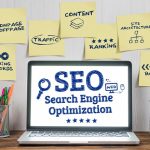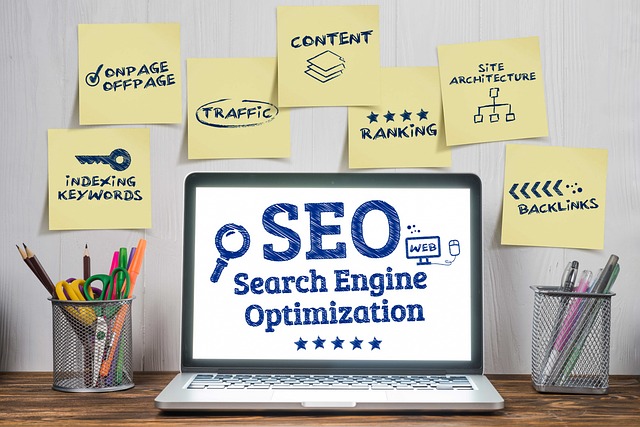Artificial intelligence is transforming SEO by automating research, content creation, and performance tracking. Leveraging AI-driven tools can sharpen strategies, improve rankings, and save time—but not all solutions offer the same value. Discover how carefully selected AI SEO platforms empower agencies and professionals to gain actionable insights, streamline workflows, and achieve measurable results in a competitive digital landscape.
How AI is Transforming SEO Strategies and Tools
In 2025, ai seo is fundamentally shifting digital marketing by making optimization smarter, faster, and more adaptive to user behavior. This approach leverages artificial intelligence to automate and enhance every aspect of search engine optimization, from content planning to technical site audits. AI SEO combines machine learning, natural language processing, and data analytics to interpret massive datasets, accurately identify relevant keywords, and refine search strategies—all with minimal manual intervention.
In the same genre : What impact does IoT have on UK marketing campaigns?
The most immediate benefit comes from increased workflow efficiency and smart automation. AI-powered tools can now conduct deep-dive keyword research, spot ranking opportunities, and even recommend on-page SEO improvements without user prompting. Features like AI-driven site auditing and real-time competitor analysis help keep websites optimized for changing algorithms and new ranking factors. AI content optimization for search rankings means even large content teams can reliably scale production while maintaining accuracy, tone, and topical authority.
Practical adoption trends show that industry leaders use AI for competitive SEO analysis, automated backlink audits, and enhanced content creation. Businesses are rapidly embracing AI writing assistants for SEO, not just to save time, but to meet highly nuanced search intent and stay visible amid the surge of AI-generated content in SERPs. This shift is especially crucial with AI Overviews on Google rising sharply in 2025, making advanced AI SEO strategies not only advantageous but necessary for digital visibility.
Also to see : Transform your content approach using ai-driven seo strategies
Essential AI SEO Tools and Their Unique Capabilities
Overview of 2025’s leading AI SEO platforms and toolkits
The best seo automation tools of 2025 excel in areas like workflow automation, content generation, and real-time reporting. AI-powered content audit tools such as Clearscope and SE Ranking enable in-depth analysis, using natural language processing in seo to pinpoint optimization gaps in both structure and substance. Semrush ai features for seo have evolved, with AI Insights and keyword gap analysis, while jasper ai for content optimization integrates with systems such as Surfer SEO to deliver actionable recommendations and automated on-page improvements. Integrating multiple platforms supports more accurate ai-based keyword research, enhancing competitive intelligence for agencies and teams.
Evaluation criteria: Effectiveness, usability, integration, and agency pricing models
AI seo software comparisons emphasize effectiveness measured by improved organic rankings and enhanced ai content optimization for search rankings. Usability remains crucial—top best ai seo platforms provide intuitive dashboards and robust integration with WordPress, Google Analytics, and other ecosystem staples. Agency pricing models have become more flexible, with solutions like Alli AI offering scalable credits, while cloud-based ai seo solutions let agencies automate audits and deploy AI-driven site auditing at scale.
Feature highlights: Automation, reporting, real-time data, and workflow enhancement
Key features of modern AI tools include automated backlink analysis using ai for fast link profile updates, automated seo report generation using ai for client transparency, and predictive analytics for seo trends. Surfer seo and jasper integration boost automated meta description writing with ai, while tools like Penny streamline seo content creation with machine learning and ensure efficient, accurate delivery. Integrating ai seo strategies across campaigns guarantees increased productivity and greater value for SEO professionals in 2025.
Case Studies: Real-World Results of AI-Driven SEO
Performance metrics from agencies and businesses adopting AI SEO
Major agencies and brands using ai-generated seo content pros and cons have reported measurable gains. Precision in content generation with ai seo tools is assessed by tracking metrics such as organic traffic increases, engagement rates, and content scoring and evaluation improvements. For example, some businesses doubled their organic visitors within a single month of deploying automated content production workflows, reflecting the ai role in improving dwell time metrics. AI content scoring and evaluation dashboards provide instant feedback for content teams, reducing errors and flagging optimization gaps early.
Comparison: Human-created vs AI-generated content outcomes
Performance comparisons consistently show that ai-generated seo content pros and cons include enhanced speed and volume but require editorial refinement. While content generation with ai seo tools accelerates brief production and basic articles, expert editorial review remains necessary for nuanced or YMYL material. In A/B tests, AI content scored higher in readability and freshness, but human-authored pieces demonstrated deeper topical depth. AI content scoring and evaluation tools quantify these differences using semantic analysis and engagement metrics.
Long-term SEO growth: Examples of improved rankings, engagement, and workload reduction
Businesses emphasizing content generation with ai seo tools are seeing lasting ranking improvements by integrating scoring and ai-generated seo content pros and cons into their workflows. The ai role in improving dwell time metrics enables ongoing strategic adjustments that extend users’ time on site. As automation replaces repetitive content production, internal resources shift to high-impact SEO projects, driving sustainable long-term growth.
Automating the SEO Workflow: Content Creation and Optimization
Streamlining Keyword Research, Outlines, and Meta Element Generation
AI-driven seo content creation with machine learning speeds up routine research and outlines. Smart algorithms now process search intent, cluster keywords, and generate topic suggestions tailored for high-performing pages. This means ai seo keyword generation can pinpoint valuable terms in seconds—tasks that once required hours of manual analysis. Furthermore, automated meta description writing with ai uses predictive analytics to deliver concise, relevant summaries for each page. Integrating ai with wordpress seo plugins simplifies publishing: these tools often include features for optimizing meta tags with ai by pulling keyword-rich phrases right into headers and meta fields.
On-Page Optimization: Headings, Keyword Density, and Structure
Machine learning tools underpin seo content creation with machine learning, ensuring content adheres to best practices for headings and logical structure. Optimizing meta tags with ai ensures the primary target terms are reflected in titles, meta descriptions, and throughout the body. AI analyzes keyword density in real time, making it straightforward to adjust content for the appropriate frequency and distribution. By integrating ai chatbots enhancing seo user engagement, sites boost both user experience and relevant dwell time—direct ranking signals in 2025.
AI-Powered Content Audits and Topic Suggestions for High-Performing Pages
AI-enabled seo keyword tracking provides continuous feedback, flagging opportunities and gaps in both content depth and topical coverage. Automated review systems recommend updates to headings, subtopics, and internal linking by referencing live performance data. Through seo content creation with machine learning and automated meta description writing with ai, sites remain aligned with evolving algorithmic priorities and user needs without manual intervention.
Advanced Applications: AI in Backlink Building, Indexing, and Competitive Analysis
Using AI for strategic backlink outreach and network growth
Automated backlink analysis using AI allows instant, thorough evaluation of link sources. AI examines backlink profiles, uncovering spam risks while spotlighting high-authority prospects. Leveraging AI for SEO link building strategies helps identify untapped outreach networks and optimizes anchor text distribution for maximum ranking impact. With backlink profile management via AI, Marketers gain organized, dynamic views of their link landscape—streamlining removal of harmful links and nurturing valuable connections. Networks expand efficiently, as AI continually adapts to algorithm shifts and competitive link tactics.
Automated indexing and site visibility tracking across search engines
AI for SEO audits and fixes detects hidden crawlability obstacles and indexing issues before rankings drop. Automated backlink analysis using AI identifies which URLs attract the strongest signals, enabling rapid prioritization during site fix cycles. Real-time monitoring ensures sites remain visible on major search engines, with automated SEO competitor monitoring flagging sudden changes in competitors’ indexed content or SERP positions. AI-enhanced tracking reports simplify indexing health not only for Google but also engines powering AI-driven search.
Benchmarking and monitoring competitor SEO with AI-driven reporting
Automated SEO competitor monitoring merges predictive analytics with ongoing reporting, revealing traffic shifts, new backlink strategies, or emerging threats. Backlink profile management via AI logs competitors’ wins and losses, ensuring proactive defense and adaptation. Leveraging AI for SEO link building strategies identifies competitive gaps, recommending actionable outreach or content enhancements. These technologies compress months of manual effort into hours, elevating SEO outcomes through smart automation.
AI SEO for Ecommerce and Multi-Language Sites
Optimizing Product Feeds, Descriptions, and Collection Pages with AI
Using AI to optimize SEO for e-commerce sites begins with transforming product feeds and descriptions through powerful automation. Cloud-based AI SEO solutions analyze search intent, ensuring every product attribute aligns with user queries and current algorithms. AI content optimization for search rankings automatically enriches product listings, while machine learning detects gaps, corrects misformatted values, and enhances compliance for Google Merchant Center. This approach streamlines updates, allowing sites with thousands of SKUs to maintain accurate and enticing copy with much less manual effort.
Integrating AI SEO in Global and Local Search Strategies
Multi-language SEO optimization using AI enables stores to efficiently target audiences in over 100 markets. Personalization in SEO content through AI tailors messaging and keywords based on specific user behaviors, elevating engagement. AI in local SEO strategies helps brands adapt product data and content to regional nuances—boosting organic visibility not only globally but within targeted communities. The integration of natural language processing in SEO ensures descriptions and metadata match how real customers search in their native languages.
AI for Compliance in Google Merchant Center and Maximizing Organic Product Visibility
Cloud-based AI SEO solutions monitor content freshness and compliance, drastically reducing the risk of product disapprovals. Automated checks ensure optimal keyword placement within meta tags, enhancing organic product visibility. AI content freshness measurement for SEO keeps listings timely and relevant, further boosting rankings. These automated SEO tools empower ecommerce teams to maximize visibility and maintain consistency across channels without coding or deep technical expertise.
Best Practices and Future Outlook of AI in SEO
Aligning AI-generated content with E-E-A-T and Google guidelines
Aligning ai-powered search optimization with E-E-A-T principles is key. To avoid penalties with ai seo content, always combine ai content optimization for search rankings with clear author credentials and reliable sources. AI-driven site auditing checks for discrepancies, ensuring compliance. Google’s guidelines stress that seo content creation with machine learning must genuinely serve users, not manipulate search results—echoed by the rise of Google ai ranking algorithms and seo standards. Prioritize fact-checking, cite sources, and keep meta tags updated through optimizing meta tags with ai to reinforce authority and trust.
Combining human expertise with AI for sustainable SEO success
Integrating ai with traditional seo methods supports the best practices for using ai in seo content writing. Human oversight ensures ai-generated seo content pros and cons are weighed—with human refinement essential to pass ai content scoring and evaluation. Blending human knowledge with advanced ai-based seo testing and experiments makes automated backlink analysis using ai more effective. Use natural language processing in seo to produce nuanced and contextually relevant content.
Anticipated trends and the evolving impact of AI on search engine optimization
Expect predictive analytics for seo trends and advanced ai seo techniques to reshape strategies in 2025. Openai technologies applied to seo and evolving ai tools for competitive seo analysis signal continuous change. AI-assisted seo strategy planning, ai seo content planning, and ethical considerations in ai seo will define future best ai seo software solutions—ensuring compliance and quality as ai in local seo strategies matures.




